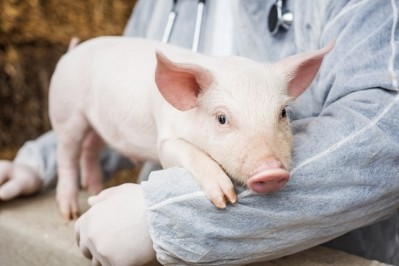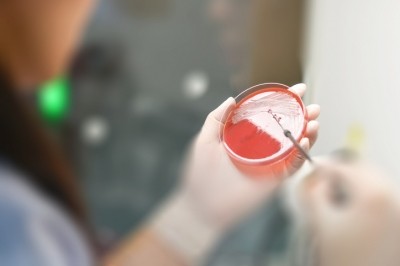EFSA weighs in on risk after unauthorized feed additive enters supply chain

The European Food Safety Authority (EFSA) has weighed in on the risk posed to consumers by a vitamin B2 produced by a GM strain of Bacillus subtilis used as a feed additive, particularly in relation to antimicrobial resistance (AMR) concerns.
The European Commission asked the Authority to do so following a RASFF alert.
Specifically, the EU executive wanted to know whether it is possible to identify the presence of genetic material that harbors genes coding for resistance to antimicrobials of human and veterinary importance in feed and in animal products.
EFSA stressed there were data gaps in the material it was given to conduct its analysis; it concluded:
“It is not possible to produce an evidence-based estimate of the risk that the specific event described in the RASFF notification 2018-2755 would pose to human health through the consumption of food derived from animals fed with the vitamin B2 feed additive under consideration.
“It is important to highlight that, from the data currently available, there is no evidence of the presence of full-length AMR gene(s) in the vitamin B2 or feed, and hence it cannot be concluded that the first step towards AMR gene transfer is fulfilled.”
Background
The Commission’s call for scientific advice followed a notification to the EU’s Rapid Alert System for Food and Feed (RASFF) by the Belgian authorities in October 2018.
The Belgian officials said then that they had identified the presence of an unauthorized GM strain of bacteria - Bacillus subtilis KCCM-10445 - in vitamin B2 in feed, including some traces, at very low levels, of recombinant DNA. The vitamin B2 in question was not authorized in the EU.
The Commission, because of that RASFF notification, alerted EU member states, telling them to block the sale of the feed ingredient; nevertheless, at that point, some compound feed containing the non-authorized vitamin had already been consumed by animals.
Thus, the EU officials wanted to know more about the risk arising from the consumption of products of animal origin derived from livestock fed with this particular additive.
EFSA assessed the data sent through from Belgium. It found that:
“The results were compatible with, but did not demonstrate the presence of, a full-length chloramphenicol resistance gene. No information was made available on the presence of other AMR genes or viable cells of the Bacillus subtilis.”
It noted that the sole presence of fragments of AMR genes in a feed additive is not a risk.
“If a full-length AMR gene were present in a feed additive, it could lead to risks not only linked to their possible direct transmission all along the feed and food chain to pathogens, but also to the environmental spread of AMR bacteria/genes that could increase/contribute to the environmental reservoir of AMR determinants,” it cautioned.
The Parma-based EU risk assessor said its statement provides a risk assessment pathway indicating the events needed to produce adverse human health effects from the presence of AMR genes in feed additives.
A spokesperson for the European Commission today told FeedNavigator this area of EU food and feed risk assessment is a “work in progress.”
“Following the RASFF alert, Member States authorities are investigating and taking the relevant measures in compliance with the legislation, Regulation 1829/2003 on GM food and feed.
“I suspect that the EFSA input will be mentioned or discussed with Member States in one of the upcoming Committees (PAFF).”
Vitamin B2 production
Riboflavin or vitamin B2 is an essential vitamin in animal nutrition. Riboflavin supplements used to be chemically synthesized, but are often now produced by commercial fermentation using overproducing strains of genetically modified bacteria. GM Bacillus subtilis production strains have been developed, and are often used for this purpose.
Vitamin B2 produced this way can be placed on the European market if no recombinant DNA or viable cells from the GM microorganism are present in the feed additive. This is to avoid the product posing a risk for the spread of viable cells and the DNA of a genetically modified strain-harboring genes coding for resistance to antimicrobials.
Company’s product identified
The RASFF notification - reference 2018.2755 - initiated by the Belgian Authorities, related to ‘unauthorized genetically modified (Bacillus subtilis) bacteria in vitamin B2 80% from China, via the Netherlands’.
Trouw Nutrition, Nutreco's animal nutrition arm, told us back in December that one of its products was identified as containing traces of the unauthorized ingredient during the testing by the Belgian officials.
Commenting on the incident, a spokesperson for Trouw Nutrition said then:
“As part of our resale activities, months ago and within the legal timeframe, we sold a small part of our vitamin B2 stock. The product tested by Belgian authorities included this vitamin B2 and found weak signals of traces of the source microorganism.”
The company said it has extensive processes in place to ensure the safety of its products and keeps this issue under continuous and ongoing review. “We also work closely with the relevant authorities.”








